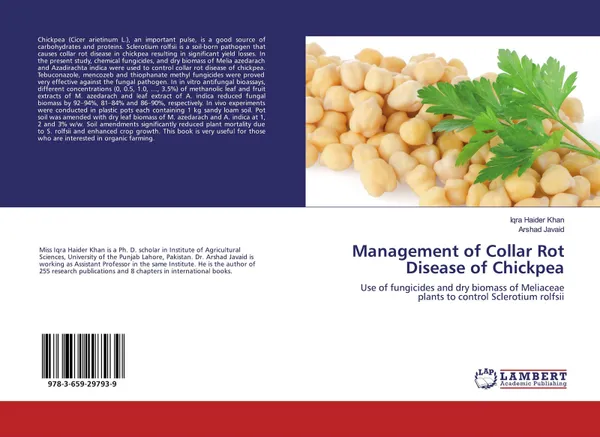Management of Collar Rot Disease of Chickpea
📓 Chickpea (Cicer arietinum L.), an important pulse, is a good source of carbohydrates and proteins. Sclerotium rolfsii is a soil-born pathogen that causes collar rot disease in chickpea resulting in significant yield losses. In the present study, chemical fungicides, and dry biomass of Melia azedarach and Azadirachta indica were used to control collar rot disease of chickpea. Tebuconazole, mencozeb and thiophanate methyl fungicides were proved very effective against the fungal pathogen. In in vitro antifungal bioassays, different concentrations (0, 0.5, 1.0, …, 3.5%) of methanolic leaf and fruit extracts of M. azedarach and leaf extract of A. indica reduced fungal biomass by 92–94%, 81–84% and 86–90%, respectively. In vivo experiments were conducted in plastic pots each containing 1 kg sandy loam soil. Pot soil was amended with dry leaf biomass of M. azedarach and A. indica at 1, 2 and 3% w/w. Soil amendments significantly reduced plant mortality due to S. rolfsii and enhanced crop growth. This book is very useful for those who are interested in organic farming.
Мнения
